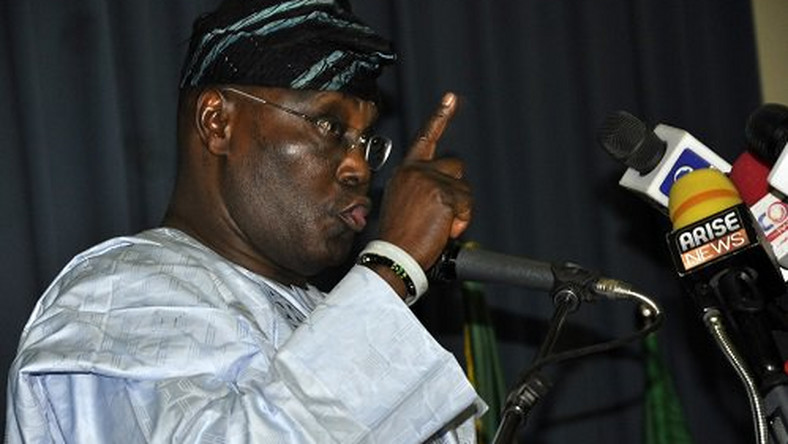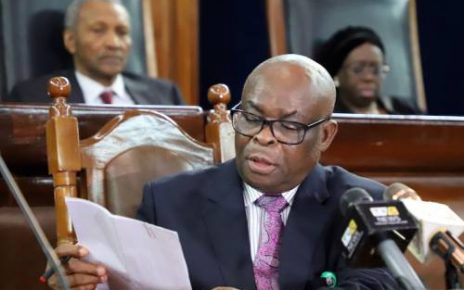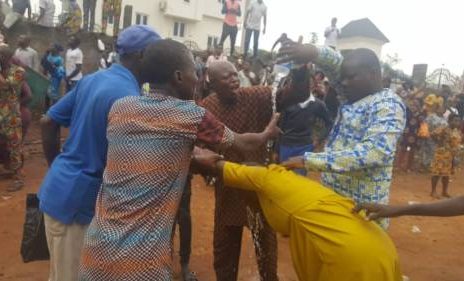Justice Abdul Aboki, Chairman of the tribunal led two other justices to give the ruling in Abuja.
The News Agency of Nigeria (NAN) reports that the PDP is listed as the second applicant.
Aboki, however, turned down the applicants prayer for access to scan and conduct forensic audit on all the electoral materials, including technology used in the conduct of the election.
Atiku Abubakar, has met with the members of the peace committee to discuss the things he is not pleased about since the presidential election was held on February 23, 2019. [Instagram/atikulated_1]
The judge held that scanning and forensic examination of electoral materials by experts were not permissible, adding that those steps were not captured in Section 151 of the Electoral Act, 2010 as amended.
He also explained that the result of forensic analysis was not admissible as evidence in court, adding that granting such a prayer would amount to wasting of time.
Aboki said the applicants should base the substance of their petition on official materials only obtained from the electoral body.
The applicants brought the exparte motion pursuant to Section 6 (6a) and (6b) of the 1999 Constitution as amended and Section 151 of the Electoral Act, 2010 as amended.
Chief Chris Uche (SAN), Counsel to the applicants had urged that tribunal to grant all six reliefs to enable them institute and maintain a petition against the outcome of the Feb. 23 presidential election.
PDP Presidential candidate Atiku Abubakar at a campaign rally in Jalingo, Taraba state
Uche said the need for scanning, photocopying and the conduct of forensic examination of all the materials used was in the interest of justice, adding that the process would assist in no small measure to locate all infractions committed in the election.



